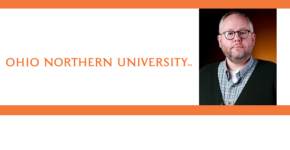 Politicians use a lot of words when campaigning, but the most meaningful are very simple.
Politicians use a lot of words when campaigning, but the most meaningful are very simple.
Douglas Dowland, associate professor of English at Ohio Northern University, discusses these.
Douglas Dowland is associate professor of English at Ohio Northern University, where he teaches a wide array of literature and humanities courses. His book We, Us, and Them was recently published by the University of Virginia Press.
Three Simple Words That Shape a Nation
There are three keywords that resurface with every election, from the local school board to the nation’s presidency. These keywords sustain an industry of lobbyists and an ever-growing army of pundits and commentators. My research shows how these three keywords are also a source of fascination and frustration to America’s most prominent authors. The three keywords are ones we use every day, but when we do, they have an enormous impact on ourselves and on others. Those words are “we,” “us,” and “them.”
An entire country can be invented by how authors use these three words. As John Steinbeck waded through the mud of South Vietnam in the mid-1960s, he could not resist using them to praise American soldiers at war as the best of “us”—while castigating the war protestors at home as a “them” at their worst. Hunter S. Thompson felt like many during the 1972 presidential election, that a great “them” had taken over the country and robbed it of its ideals. James Baldwin, at the end of his career, found little room for the “us” he had in mind when he wrote so eloquently decades before of the power of brotherhood and national love. And J.D. Vance peppered his classic memoir Hillbilly Elegy with a “we” of rust-belt Americans at odds with a “them” of the coasts.
Friendships and enemies, fellow citizens and foreigners can be sculpted from them these three simple words. They are words that divide as much as they unite. Every election reminds us how they are used and abused, from the highest offices in the land to the writer scribbling at their solitary desk. Being aware of the work of these words goes a long way to understand how America is shaped and reshaped, at the ballot box and beyond.
Read More:
[UPress Virginia] – We, Us, and Them
